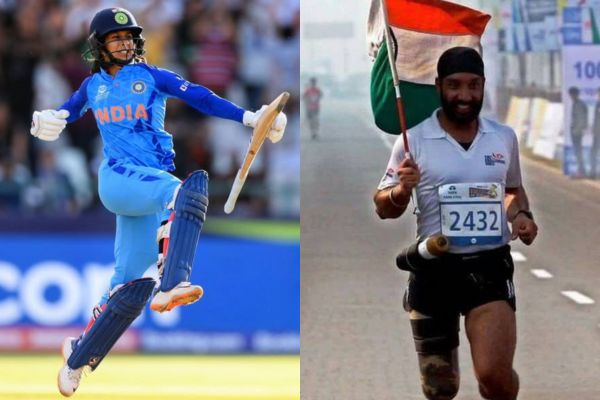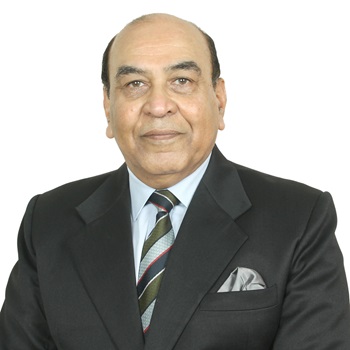.png)
‘We Shall Overcome’: How the Women’s World Cup Triumph Mirrors India’s Spirit of Belief and Resilience
Every great comeback begins with belief. The Women’s World Cup victory, Jemimah Rodrigues’ rebirth, and Major DP Singh’s journey from war injury to glory reveal a truth India has always known — we rise because we rise together.


Lt Gen Syed Ata Hasnain is a former Commander of India’s Kashmir Corps and Chancellor of the Central University of Kashmir.
November 1, 2025 at 5:45 AM IST
Human existence is all about adjustment — to survive, to excel, and to ensure a better tomorrow for those who follow. I have spent a lifetime leading men in difficult circumstances, and one truth has never changed; leadership is not about authority alone; it is about belief. The belief that no situation is insurmountable, that “if it is difficult, it will be done; if it is impossible, it will take a little longer.”
In the Indian Army, I saw how empathy and encouragement could transform ordinary people into extraordinary performers. A leader’s role is not just to issue orders but to inspire — to make the team feel that destiny itself walks with them. My sub-unit once told me they believed I had a divine hand over my head. That wasn’t about me; it was about them — their faith in the collective spirit. It is this faith that turns units, teams, and even nations from low performance to excellence.
But belief doesn’t emerge in isolation. It needs a supportive ecosystem — mentors, peers, families — who refuse to give up when failure strikes. We often celebrate individual success, but behind every achiever stands a team that listens, guided, and inspired.
The Semi-Final Triumph
Once dropped from the national side and struggling with confidence, Jemimah found herself doubting her place in the game she loved. But her teammates and coaches stood by her. They saw potential where she saw pressure. Supported, coached, and encouraged, she rebuilt herself mentally and technically. In the semi-final, she rose like a phoenix, scoring an unbeaten 127 to chase down Australia’s towering total of 339, the highest successful run-chase in women’s cricket history.
Her story is not just about personal revival. It is about collective will. Her team’s faith in her became her fuel. Their empathy — their belief that she could rise again — created a feedback loop of inspiration. In that moment, the entire nation saw what happens when failure is treated not as a verdict, but as a stepping stone.
I have long believed that empathy is a force multiplier — in war, in peace, and in sport. When people feel understood, they perform beyond imagination. Jemimah’s revival wasn’t engineered by analytics or drills; it was powered by human connection. That’s what teams and families do — they lend you their belief when yours runs out.
Major DP Singh
Over time, he ran dozens of half-marathons, sky-dived, mentored other amputees, and became an icon of courage. His transformation wasn’t just personal rehabilitation — it was the victory of spirit over circumstance. But, as he himself admits, he could not have done it alone. His unit, his mentors, and his family infused him with purpose when he had none left. The message here is timeless: belief multiplies when shared.
Both Jemimah Rodrigues and Major DP Singh show that success is not the opposite of failure; it is its continuation. The most remarkable comebacks are often born from the depths of defeat. Leadership, coaching, mentoring, and family all form the scaffolding that helps individuals climb back from the brink.
In my years in uniform, I’ve seen the same pattern play out time and again. The best leaders aren’t those who never face setbacks; they are the ones who handle failure with grace — who teach their teams that “we fail only to later succeed.” Just as important is the ability to handle success — to keep winning from breeding complacency. Making winning a habit requires humility, gratitude, and constant renewal of purpose.
Jemimah’s calm after her heroic innings, and Major Singh’s humility after his extraordinary achievements, both reflect that maturity. They remind us that real success is not measured by trophies or medals but by resilience — the ability to rise, rebuild, and remain grounded.
The larger lesson lies in how these personal stories echo the national psyche of India. As a people, we have always lived with an enduring sense of optimism — the conviction that however daunting the odds, “Hum Honge Kaamyab,” (“We Shall Overcome”). From freedom struggles to natural disasters, from wars to pandemics, India’s story has been one of quiet persistence. We stumble, we adapt, and we rise again — stronger, wiser, and more self-aware.
That belief, that indomitable spirit, is what defines the idea of India. It’s not about perfection; it’s about perseverance. Whether in the battlefield, the boardroom, or the cricket field, Indians have an instinctive ability to draw strength from adversity. That instinct comes from our families, our communities, our shared faith that effort is never wasted.
Leadership, therefore, is not just about commanding teams; it is about cultivating ecosystems of encouragement. It is about seeing potential through failure, offering faith through fatigue, and extending empathy through difficulty. The Indian women’s team, Major DP Singh, and countless others remind us that success is a collective act. No one wins alone.
As India rises in every field — from technology to sports, from defence to diplomacy — we must remember that belief is our true capital. Our future will depend not only on policy or prowess but on our ability to keep faith in ourselves and in each other.
When I see the Indian Women’s Cricket Team celebrate at Navi Mumbai or watch Major DP Singh run past the finish line on his blade, I see the same spirit I once saw in the eyes of my soldiers: a refusal to give up, a confidence that tomorrow will be better, and an unspoken contract — that together, we can achieve the impossible. Some great stories exist in the story bank of the Indian Armed Forces and the annals of Indian sports history; all waiting to be told to inspire us all.
That, in essence, is India. The land where empathy fuels excellence, where failure is only the first act of success, and where the power of belief continues to build miracles every single day.



